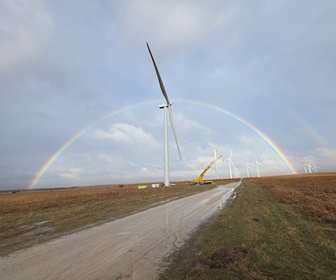Ørsted reported an operating profit (EBITDA) of DKK 30.0 billion, up 33% compared to 2017. EBITDA without new partnerships increased by 18% to DKK 15.0 billion. The increase compared to the latter was mainly due to higher achieved Renewable Obligation Certificates (ROC) recycle values, lower than expected costs, and better than expected progress on Borkum Riffgrund 2 resulting in higher partnership gains and faster ramp-up of generation.
Earnings from offshore wind farms in operation increased by 29% to DKK 11.0 billion in 2018, primarily due to ramp-up at Walney Extension, Race Bank and Borkum Riffgrund 2. They completed the farm-down of Hornsea 1, one of the largest renewable energy M&A transactions ever. Total EBITDA from the transaction amounted to DKK 15.1 billion in 2018.
Net profit amounted to DKK 19.5 billion. This was an increase of DKK 6.2 billion compared to 2017. The company increased its share of renewable energy in their generation mix from 64% to 75% in 2018. This was driven by ramp-up and commissioning of new offshore wind farms in the UK and Germany, the acquisition of Lincoln Clean Energy (LCE) in the USA and increased generation based on biomass at the Avedøre and Skærbæk power stations.
EBITDA (business performance) is expected to be DKK 15.5-16.5 billion in 2019 compared with DKK 15.0 billion in 2018 (excluding new partnership agreements), corresponding to an increase of 4-10%. Gross investments for 2019 are expected to amount to DKK 21-23 billion, reflecting a high level of activity related to offshore and onshore wind farm projects.









